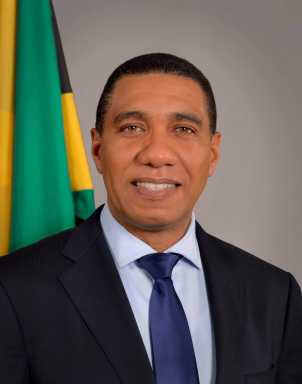Listeners:
Top listeners:
-
play_arrow
RadioJLR Just Press Play
A federal judge for the Eastern District Court of New York is set to deliver a ruling within the next week on whether President Donald Trump’s administration may shorten the most recent extension of Haitian immigrants’ Temporary Protected Status (TPS).
The ruling could affect more than 500,000 Haitian TPS holders living in the United States.
Judge Brian Cogan heard arguments at the district courthouse in Brooklyn Wednesday afternoon. Raymond Audain, an attorney representing the plaintiffs in the case, said the ruling will deeply impact the futures and opportunities of Haitian TPS holders.
“It’s going to impact their employment, it’s going to impact their housing, it’s going to impact their family situation, especially for people with U.S. citizen children,” Audain said. “The prospect of one losing status and maybe being deported to Haiti, I think it’s just kind of self-evident how potentially horrifying that is.”
Plaintiffs argued that Homeland Security Secretary Kristi Noem’s attempted nullification of the extension of Haiti’s TPS designation is illegal and poses an “imminent harm” to the roughly half-million Haitian TPS holders in the United States. In the Department of Homeland Security’s February announcement of the shortened extension, the department stated that the “TPS system has been exploited and abused” for decades, citing the year-over-year increases in Haitian nationals being deemed newly eligible for TPS.
In July 2024, the Biden administration extended Haiti’s TPS designation, which has been in place since 2010, to February 2026. The Trump administration is attempting to shorten that extension by six months to this August. Plaintiffs claim the truncation of the extension is in violation of the TPS statute and the Administrative Procedure Act.
“What we’re arguing is that they can’t shorten the date, the February 2026 date needs to stick, because the statute doesn’t contemplate you cutting that time short,” Audain said.
TPS designation may be granted to countries experiencing conditions that would prevent nationals from returning safely. In Haiti, escalating gang violence poses increasing threats to civilians, especially children. Those who hold the status are not removable from the U.S., may obtain a work permit, and may be authorized to travel.
The Trump administration attempted to end Haiti’s TPS designation during Trump’s first term in 2018. The Eastern District of New York blocked the termination, citing evidence that the attempt was illegal, arbitrary, and “motivated by discriminatory animus.” Now, the administration is aiming to end TPS protections for Haitian and Venezuelan nationals in the U.S.
Audain is happy with how the hearing went and said that Cogan seemed understanding of the stakes of the case.
“I think that the issues here are pretty esoteric and pretty technical, but it’s important to remember that there are very real people whose lives and whose families are going to be impacted by his decision,” Audain said. “And although I’m sure he completely understood and appreciated that, I think having people from the community in the gallery kind of, maybe really brought that home for him.”
The Supreme Court ruled in favor of the Trump administration’s efforts to end the TPS designation covering 350,000 Venezuelan immigrants in the U.S. on May 19, overruling a California federal judge’s order to halt the plan. Audain said that the ruling, though related, “doesn’t impact our case.”
“We’ll take the government at its word that things are different in this case from in the California case,” Audain said. “And so the Supreme Court’s decision in this case should be super limited, if have any impact at all.”
Audain said Noem will determine the future of Haiti’s TPS designation by June 4 — a determination that will likely be affected by Cogan’s ruling.
Written by: Adm
Similar posts
© 2025. All Rights Reserved by Radio-JLR


